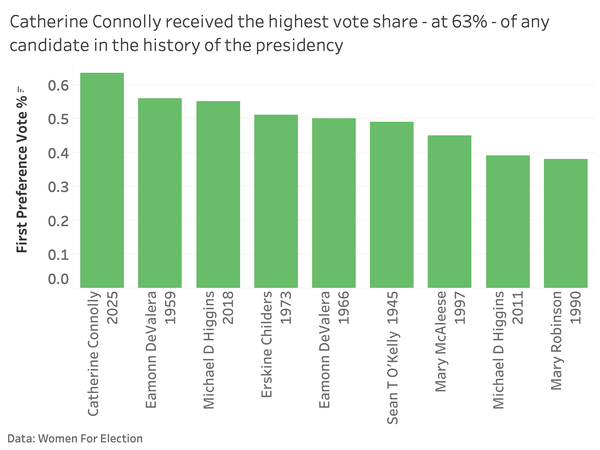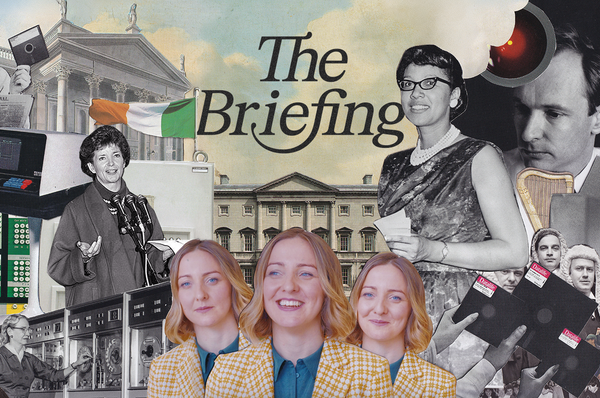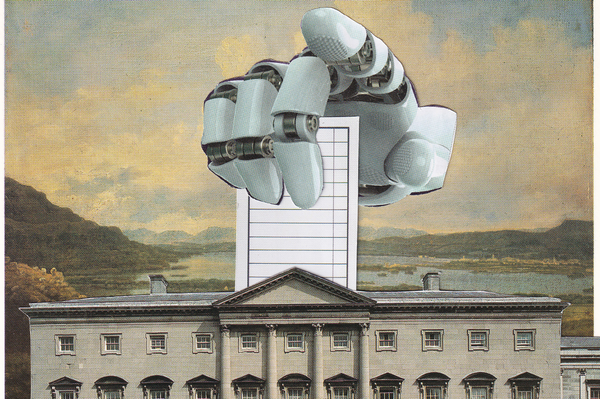Is violence an inevitable byproduct of the attention economy?
We need to start looking at this kind of performative violence as an endemic byproduct of the attention economy
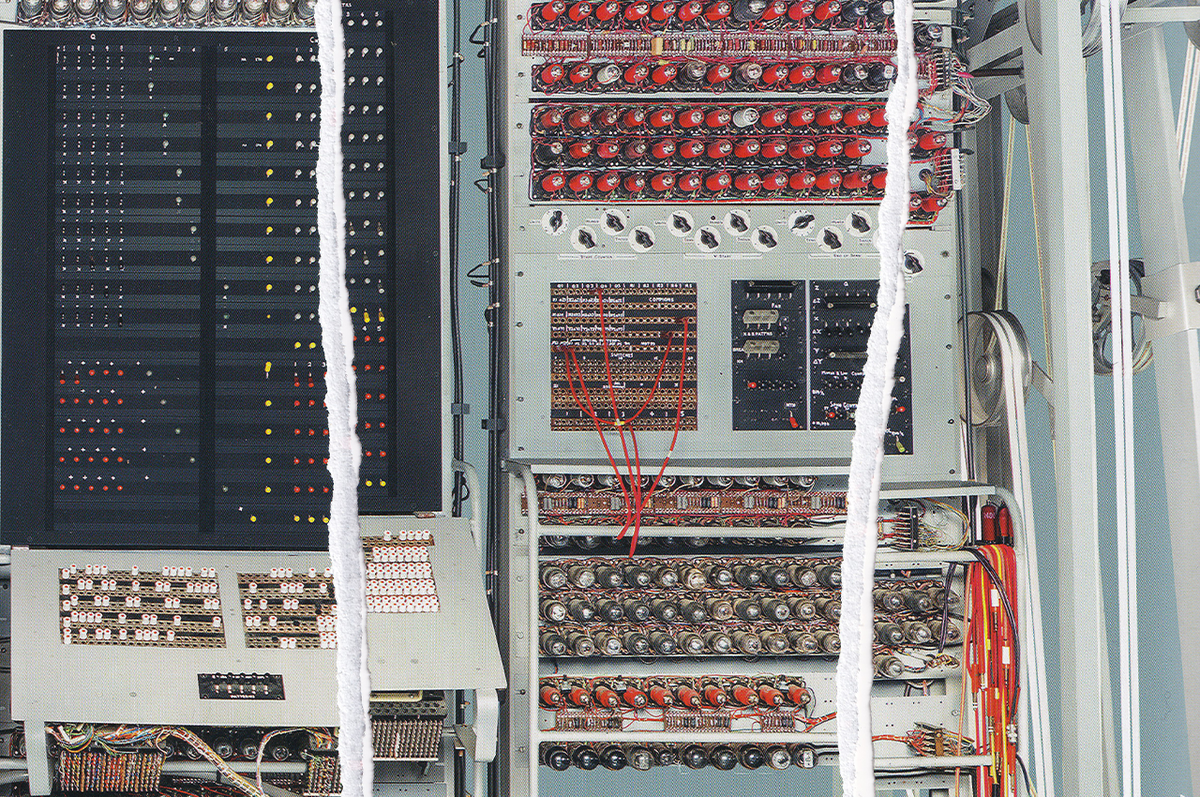
I have an opinion piece in the Irish Times today about the Charlie Kirk murder, and I thought I would do a little behind the scenes post on it.
I wrote it mostly on Sunday and Monday as the police and amateur sleuths were dissecting the breadcrumbs the killer left on the ground and on the internet. It was honestly painful watching the debate about the "True Meaning" of the idiotic memes the shooter etched into their bullet casings.
But then, by Monday, the stakes shot up. This battle over meaning and motive were being used as evidence of a "leftist" conspiracy; as justification to openly talk about designating progressive organisations as terrorists.
Some smart people think very seriously about memes, including Joan Donovan, formerly at Harvard. A few years ago we had her in Dublin to talk about her book "Meme wars", a surreptitiously deep sociological look at meme culture and politics. She was out of the blocks quickly last week trying to shoot down any ideas that these could be taken at face value; here is an example:
The “notices bulge owo what’s this?” engraving is ironic shit posting that came out of furry culture, but has been remixed a lot since then. Another casing read “if you’re reading this, you’re gay lmao” which is mocking the cops.
— BostonJoan 🏳️🌈 🦫 (@bostonjoan.bsky.social) 2025-09-12T14:40:58.700Z
It seems increasingly evident that these memes are not some sort of political manifesto; as I write in today's paper:
"Rather than containing subtle clues about some coded political ideology, these scrawls are just as likely to have been a juvenile attempt to gain the kind of internet clout that comes with ironic meme creation and sharing. There’s probably no Unabomber manifesto to be discovered here; this is more equivalent to making the teacher read aloud the dirty joke on a dropped note."
That theory seems to have played out overnight, as the FBI released transcripts of the exchange between the suspect and their roommate, including this:
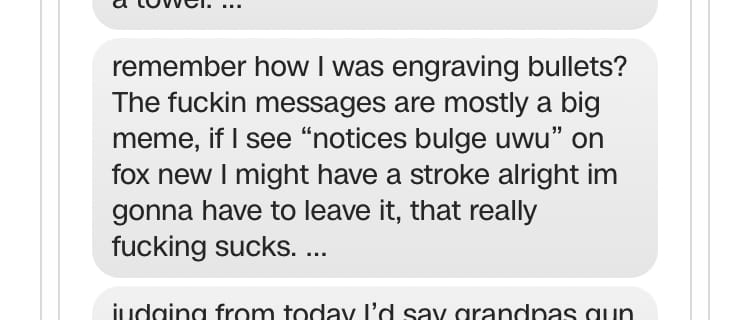
This had me thinking about the Irish local elections last year, when we saw (as I wrote at the time):
"intimidation and threats of violence experienced by candidates and canvassers. What is striking about the many reports of harassment is the consistent way victims report being filmed. This footage is then circulated mostly within semi-closed online communities in order to earn bragging rights... performative violence – abuse as content creation – is something new, at least at the scale that the anecdotal data suggests."
Looking at this - and the fact that the shooter joked with his friends on Discord while on the run, and the stage managed spectacle that led to the flooding of social media feeds with autoplaying video of the shooting - led me to conclude this crime was potentially about building clout. As I write today:
"The shooting may be better understood as something other than political: an act of performative violence, committed primarily to garner attention or for online credibility."
I can't help coming to the conclusion (this isn't in the piece as I am still thinking it through) that we need to start looking at this kind of performative violence as an endemic byproduct of the attention economy (see also the livestreaming of January 6th, of the Christchurch massacre etc.).
Viewed this way, politics is less the purpose of the violence than it is its stage; what other parts of life are so primed to draw both approbation and rage - each an equally valuable form of attention?


